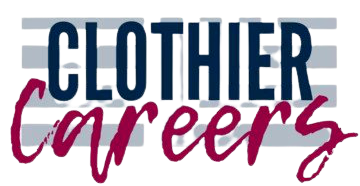Insider tips: Your first Retail Job
Getting your foot in the door is hard — especially when you are looking for your first job, and you have school and extra circular commitments to juggle on the side.
But getting your foot in that door is the first step to a promising career. It is a chance to learn the skills required to communicate professionally and work collaboratively, as well as an opportunity to break down what you do — and don't — like about a workplace. All the while beefing up your resume, making some cash, and meeting new people — sounds pretty good, right?
To help you be confident on your next (or first) job hunt, we asked a few retail managers what they were looking for in potential junior staff and how they can make a first impression count.
So, let’s get started. Picture this: you walk into a store, resume in hand, and you are looking for someone to talk to about applying for a position. When you get a chance to speak to the manager, what do you think they need to know?
1) Availability
First and foremost, the manager needs to know when you can work and what hours you can commit weekly.
One of the managers we spoke to says: “(The company) understands that a 16-year-old is likely to have school and other commitments, and I don’t hold that against them, but in order to know if this will work I need to know what days and times they will be able to commit to the job.”
Before you head into the store, make sure you know when you can work. Some questions to ask yourself might be: how much time do I need between finishing school and starting work?
To work through this question, think about if you have a way to get to work each shift — do you have a backup option if your transport falls through? (Maybe it’s rainy and you can't walk, your parents must work late one night, or the bus isn’t running).
Some other points to consider are: will you be able to get home safely on late shifts, how much time you need to dedicate to homework nightly, and will you have time for socialisation?
Break these questions down and decide which days and shift times work best for you before you go in so you can be prepared for any questions. You can also write these preferences down on your application — so the manager has a reference point to check.
2) Presentation
If you are enquiring about a role in store — you need to dress for the occasion. Now, this does not mean you need to be impeccably dressed head to toe; it simply means you need to be clean, neat, and tidy. One of our managers specifies “no thongs,” which we think is a fair deal.
Think about the role you are applying for and what the store or brand represents. If you are applying for a job in a fashion store, take note of what the store sells and wear something similar — but make sure it is still professional. A good tip is to look at what the employees in the store are wearing — and then add a little bit more sophistication. Hint: swap jeans for trousers, culottes, or a skirt.
We spoke to a fashion manager who emphasised this: "If a (potential job candidate) strolls in and it's obvious they haven't made an effort to look presentable, then that speaks volumes to me about the kind of state they'll rock up to work in. Being a fashion store, image is important and the way our staff show up to work reflects on how we portray the brand.”
If you are struggling to pull together an outfit or find yourself tempted to invest in something new. Remember that the most important thing is that you are neat — brushing your hair, giving your shoes a quick clean, and ironing your shirt and pants can make a tremendous difference in this.
3) Conversation
Even if the role you are applying for is not face-to-face with customers, the chances are high you will still need to interact with them at some point. Your manager needs to know you can do this kindly and professionally, and they also need to know you will fit in with the team.
"When someone walks in and wants to speak to me about work available, they need to hold the conversation confidently. I don't expect (a junior applicant) to have an elevator pitch ready, but a smile and eye contact goes a long way and tells me that they will be confident to treat our customers with the same courtesy."
Don't forget that it is okay to be nervous! The best thing you can do is prepare beforehand, and be kind and courteous of others time — this includes whoever first greets you, the manager, and any customers you might interact with when in the store.
In short, if you are doing a traditional ‘resume drop’ while scouting casual or part-time work remember these three things BEFORE you walk in the door.
- Know your availability so that you can share this information upfront when asked
- Dress accordingly - smart casual is the recommendation, and ensure you look neat
- Smile, make eye contact and speak clearly - even though you are probably feeling nervous, it's important to the people you are speaking to!
Thank you to our local insiders for the input — some of whom are previous clients of Clothier Careers. We appreciate your knowledge and experiences and hope some well-prepared applicants are knocking down your doors soon.
We offer youth resume services alongside our regular services — click here for more information or send us an email at info@clothiercareers.com

